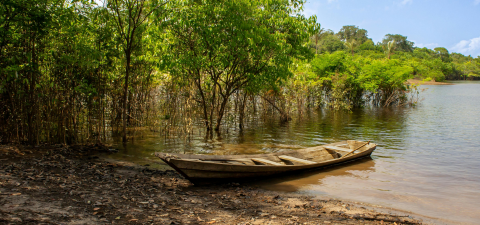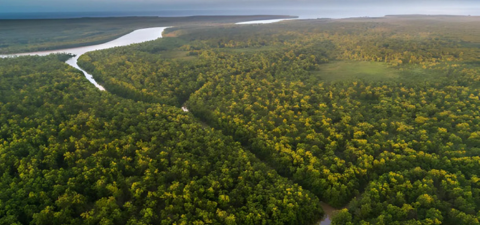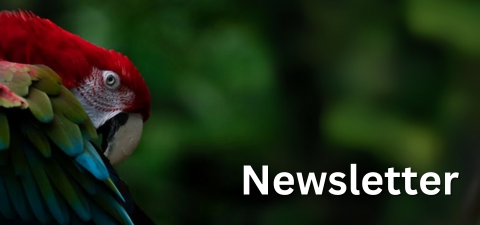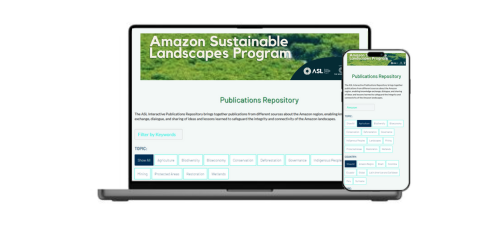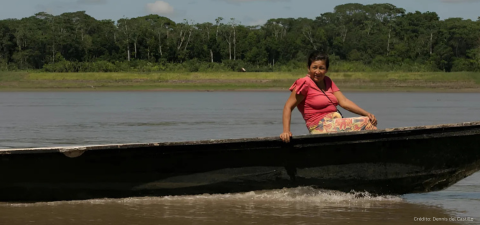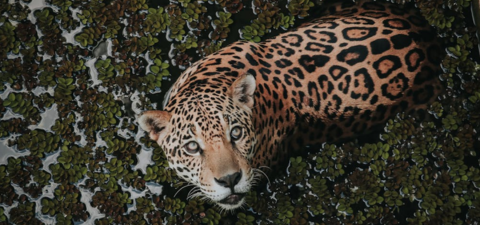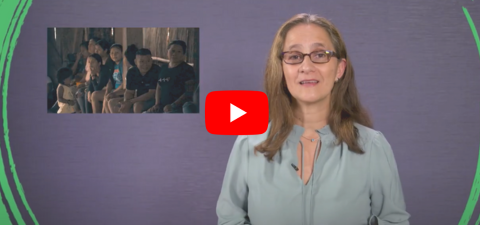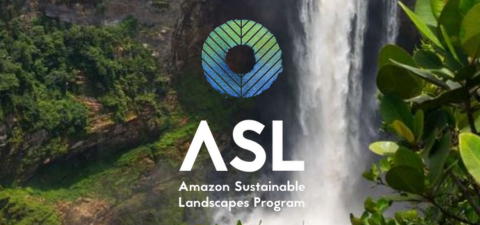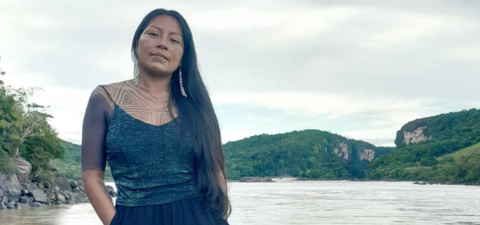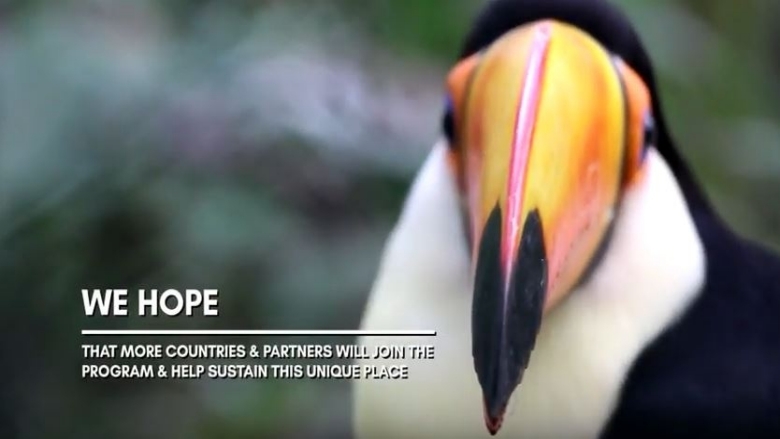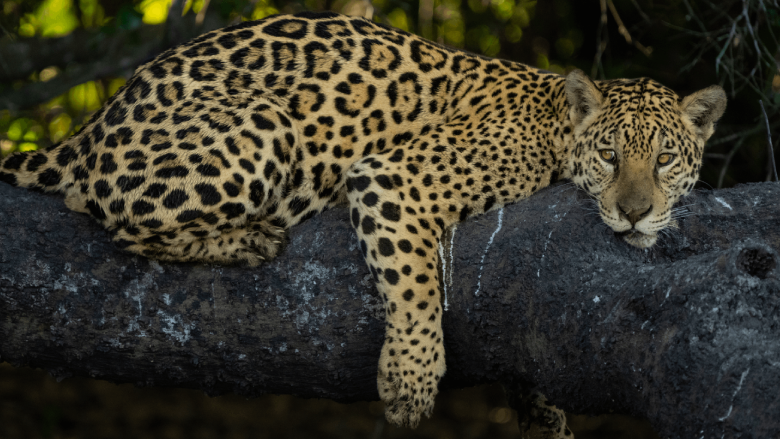
Amazon Sustainable Landscapes Program
Connecting people and institutions to connect landscapes

The Amazon is the MOST BIODIVERSE PLACE ON EARTH, hosting 10% of the world´s known species.
Featured
Connecting Amazonian Wetlands: Resources from the Amazon Sustainable ...
Amazonian wetlands are vital for fisheries, agriculture, and local economies. When they prosper, they strengthen livelihoods and cultures. Amazonian countries exchange knowledge and best practices through the Amazon Sustainable Landscapes program to protect them.
February 4: State of Ecological Connectivity in the Panamazon
The Amazon rainforest is vital for global climate regulation, biodiversity, and Indigenous livelihoods, but increasing ecosystem fragmentation threatens its ecological integrity. A study presented at COP16 reveals that 83.5% of the Amazon's undisturbed areas are at risk of losing ecological connectivity, impacting species mobility, gene flow, and the forest's ability to adapt to environmental changes. This webinar will discuss the study's findings and promote strategies for restoring connectivity while respecting Indigenous rights and traditions.
ASL Newsletter December 2024
This edition of the ASL newsletter highlights community events, advocacy updates, and partnerships, including contributions to COP16 and Jaguar Day celebrations. The "Echoes from the Amazon" section features a spotlight on Suriname’s Samuda Jabini and her impactful work, along with details about upcoming events and resources to support skill development and engagement.
Launched: ASL Data Portal
The ASL has launched a new Data Portal, offering access to three interactive repositories focused on the Amazon and the Amazon region. With over 300 resources, users can explore content by source, format, country, year, language, or keyword.
Building Partnerships to Foster a Greater Future for the Amazonia
Saving the Amazon without partnerships is unthinkable. As the world’s largest rain forest, it is a single ecological unit taking no heed of country borders. The threats and challenges cross these borders. Actions in one country that ignore the regional dynamics can be negative for another country. Conversely, having the solutions and common vision cross borders will contribute to conserve and protect the Amazon.
Protecting Jaguars' Role in Ecosystem Balance in the Amazon
The Amazon is home to approximately 90% of the world’s jaguar population, who play a crucial role in maintaining the ecological balance of the Amazon rainforest by regulating prey populations. Conservation efforts using technology and ecological corridors are vital to protecting jaguars and their habitats.
Amazon Sustainable Landscapes: Connecting Communities, Institutions and ...
Learn how one of ASL's national projects, Heart of the Amazon in Colombia, promotes sustainable practices and strengthens local governance to protect one of the most biodiverse ecosystems on the planet. Working in partnership between institutions of the national environmental system, the project celebrates 10 years of active work to ensure sustainability and conservation in the heart of the Amazon.
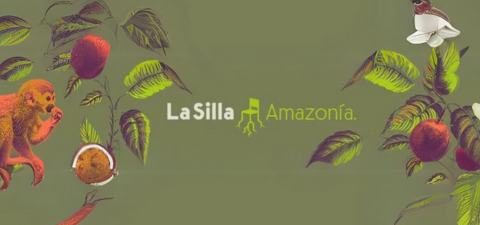
La Silla Vacía Launches "Silla Amazonía"
The Colombian media outlet "La Silla Vacía" has launched "Silla Amazonía," a section dedicated to covering the challenges and progress in the conservation of the Amazon region. The initiative is carried out in partnership with the World Bank, through the ASL, with resources from the GEF; as well as with other partners like CAF and USAID.
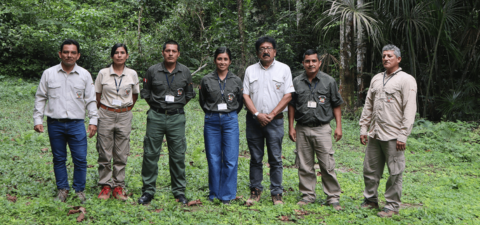
Celebrating Amazon Rangers
In honor of World Ranger Day, we celebrate the incredible rangers who dedicate their lives to protecting the Amazon Rainforest. Join us as we spotlight extraordinary rangers from the Amazon region working with ASL projects in this Storymap.
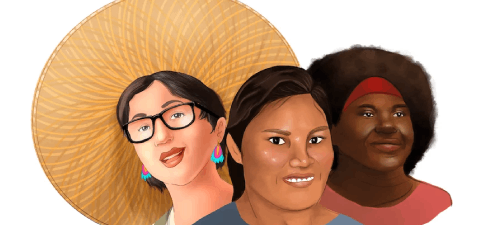
Guardianas del Futuro (Guardians of the Future) Podcast
Colombian media outlet "La Oreja Roja" visited the Colombian Amazon to meet the female leaders fighting for environmental conservation and tackling issues like illegal mining and deforestation. These women are part of the ASL and its Heart of the Amazon project.
ASL 2023 Progress Report
The report offers an overview of our program, highlighting the achievements, challenges, and lessons from the national projects. These successes have been made possible through fruitful collaborations with governments, project teams, civil society, donors, and other organizations working in the Amazon region. Additionally, the report includes information on the third phase (ASL3) of the program.
International Funding for Amazon Conservation and Sustainable Management: An ...
This analysis provides important data on funding for conservation and sustainable development in the Amazon, especially given its focus on the period in which the COVID-19 pandemic occurred. This information can be used to inform and promote dialogue leading to enhanced donor coordination efforts. Key recommendations include updating these data regularly, enhancing the analysis with impact evaluations, using the data to establish synergies among donors and recipients, and increasing funding that goes directly to indigenous and local communities. The study makes the updated funding data from 2013-2022 available in an interactive open access data visualization dashboard, which was created by the World Bank during the previous study.

Regional Collaboration to Address the Impacts of Mercury Pollution in the ...
Illegal mining in the Amazon region affects ecosystems and their biodiversity and the health of local and Indigenous communities. These effects are exacerbated by the indiscriminate use of mercury, a toxic metal used to separate gold in the mining process. ...
Exploring Employment Effects on Restoration Efforts
The ASL Regional Project commissioned Climate Focus to examine the social and economic impacts of the ASL1-supported restoration projects and provide recommendations for scaling up. The primary focus of the study was on employment opportunities resulting from forest restoration. The study analyzed the four ASL1 projects in Colombia, Peru, and Brazil, which involved various restoration activities and quantified direct and indirect employment generated by these activities.
Indigenous Youth on Cultural Identity and a Livable Planet
This year, the International Day of the World's Indigenous Peoples recognizes the efforts of Indigenous Youth to support sustainable development, along with their pursuit of justice and preservation of their culture and traditions. The World Bank interviewed Indigenous Youth leaders around the world, including Eglenis Valerio of the Ticuna people and Danixa Moreno of the Nonuya people from the Amazon region. They highlighted the importance of strengthening and revitalizing their connection with the environment as key to their identity.
Lessons Learned in Connectivity Conservation
The guidance note illustrates the challenges, experiences and lessons learned across ASL and GWP projects on ecological corridors and connectivity. Sub-themes include spatial connectivity planning, governance, management and monitoring plans and public participation in connectivity.
Celebrating Amazon Wetlands
Wetlands are "areas of marsh, fen, peatland or water, whether natural or artificial, permanent or temporary, with water that is static or flowing, fresh, brackish or salt, including areas of marine water the depth of which at low tide does not exceeded 6 meters." Learn about the importance and characteristics of Amazon wetlands in this infographic.
Lessons learned in promoting gender equity in the Amazon
Women play an important role as agents of change within their communities, making valuable contributions to the protection and care of the environment. In order to analyze the gender gaps present in conservation and sustainable development initiatives in the Amazon region and identify solutions to address them, the Amazon Sustainable Landscapes regional Project produced the “Women's Solutions: Lessons for Conservation and Sustainable Development of the Amazon” study.

Opening up opportunities for participatory wildlife monitoring in the Amazon ...
Camera traps and technology accessible to communities and governments can be powerful tools for conservation decision making. The ASL regional project partnered with Wildlife Insights (WI) to develop a dedicated data explorer tool that assesses and analyzes images of wildlife captured by camera traps.

Women's Solutions: Lessons for the conservation and sustainable development ...
The study highlights success stories in the Amazon regions of Brazil, Colombia, and Peru, where gender gaps have been reduced, and from which lessons and relevant recommendations for other interventions can be drawn. The study was commissioned by the regional project of the Amazon Sustainable Landscapes program and prepared by the Center for International Forestry Research (CIFOR).
Study tour strengthens community-based sustainable tourism initiatives in the ...
Community-Based Sustainable Tourism (CBST) is an emerging sector that offers travelers a more authentic and sustainable experience. It can add value to natural resource conservation and promote local livelihoods and jobs. The Amazon Sustainable Landscapes Program supports CBST, recently facilitating a knowledge exchange journey, including virtual lessons and a study tour with local entrepreneurs, community leaders, and government officials from Brazil, Colombia, and Peru.

The Amazon we want – and key ideas on how to get there
The Amazon plays a critical role in influencing the global carbon cycle, it is the world’s largest freshwater system, hosting 40% of the world’s remaining rainforest and 10% of the world’s known biodiversity. Protecting the Amazon is a survival issue and a moral imperative that can be accomplished by promoting an integrated conservation and development model that is inclusive and socially, environmentally, and economically sustainable.

ASL Community of Practice
Our ASL Community of Practice is a place for practitioners to connect, share, and collaborate on various topics across the Amazon region.
What is the Amazon Sustainable Landscapes Program (ASL)?
Led by the World Bank, the ASL aims to protect globally significant biodiversity and implement policies to foster sustainable land use and restoration of native vegetation cover.

VIDEO

Joining Forces to Protect the Amazon – the World’s Largest Rainforest
FEATURED
Preserving the Treasures of the Amazon
ASL Community
Explore the ASL Community
